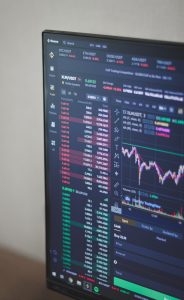Forex trading involves the buying and selling of currency pairs, and the profits are made from the difference in price between the buy and sell price. The difference in price is known as the spread, which is a fundamental concept in forex trading. In this article, we will explain what is spread in forex broker and how it impacts forex trading.
What is Spread in Forex Broker?
Spread in forex broker refers to the difference between the bid price and the ask price of a currency pair. Bid price is the price at which the broker is willing to buy a currency pair from the trader, while the ask price is the price at which the broker is willing to sell a currency pair to the trader. The difference between these two prices is the spread.
For instance, if the bid price of EUR/USD is 1.2000, while the ask price is 1.2005, the spread is 5 pips. The spread is usually expressed in pips, which is the smallest unit of price change in forex trading. A pip is the fourth decimal place in most currency pairs, except for the Japanese yen pairs, where it is the second decimal place.
How Spread Affects Forex Trading
Spread is a crucial factor in forex trading, as it affects the profitability of the trade. The spread is the cost of trading, and it is deducted from the profits or added to the losses. Therefore, the narrower the spread, the more profitable the trade will be. Conversely, a wider spread means that the trader will have to make a higher profit to break even.
For example, if a trader buys EUR/USD at 1.2000 and sells it at 1.2005, the trade will be profitable by 5 pips. However, if the spread is 3 pips, the profit will be reduced to 2 pips, which is a significant difference. Therefore, traders should pay attention to the spread when choosing a forex broker, as it can impact their profitability.
Factors Affecting Spread
The spread can vary depending on several factors, including market volatility, liquidity, and the broker’s commission. During high volatility, the spread tends to widen, as the broker tries to mitigate the risk of price fluctuations. Additionally, currency pairs with high liquidity tend to have a lower spread, as there are more buyers and sellers in the market.
Furthermore, the broker’s commission can impact the spread, as some brokers charge a commission per trade instead of widening the spread. Therefore, traders should consider both the spread and commission when choosing a forex broker.
Types of Spread
There are two types of spread in forex trading: fixed spread and variable spread. Fixed spread means that the spread remains constant, regardless of market conditions. This type of spread is suitable for traders who want to know the exact cost of trading and avoid surprises. However, fixed spread tends to be higher than variable spread, as the broker has to factor in the risk of price fluctuations.
On the other hand, variable spread means that the spread changes according to market conditions. During low volatility, the spread tends to be narrower, while during high volatility, the spread tends to widen. Variable spread is suitable for traders who want to take advantage of market fluctuations and get the best possible price. However, variable spread can be unpredictable, and traders should be prepared for sudden changes in the spread.
Conclusion
Spread is a crucial factor in forex trading, as it affects the profitability of the trade. Traders should pay attention to the spread when choosing a forex broker, as it can impact their profitability. Additionally, the spread can vary depending on several factors, including market volatility, liquidity, and the broker’s commission. Therefore, traders should consider both the spread and commission when choosing a forex broker. Finally, there are two types of spread in forex trading: fixed spread and variable spread, and traders should choose the one that suits their trading style.





